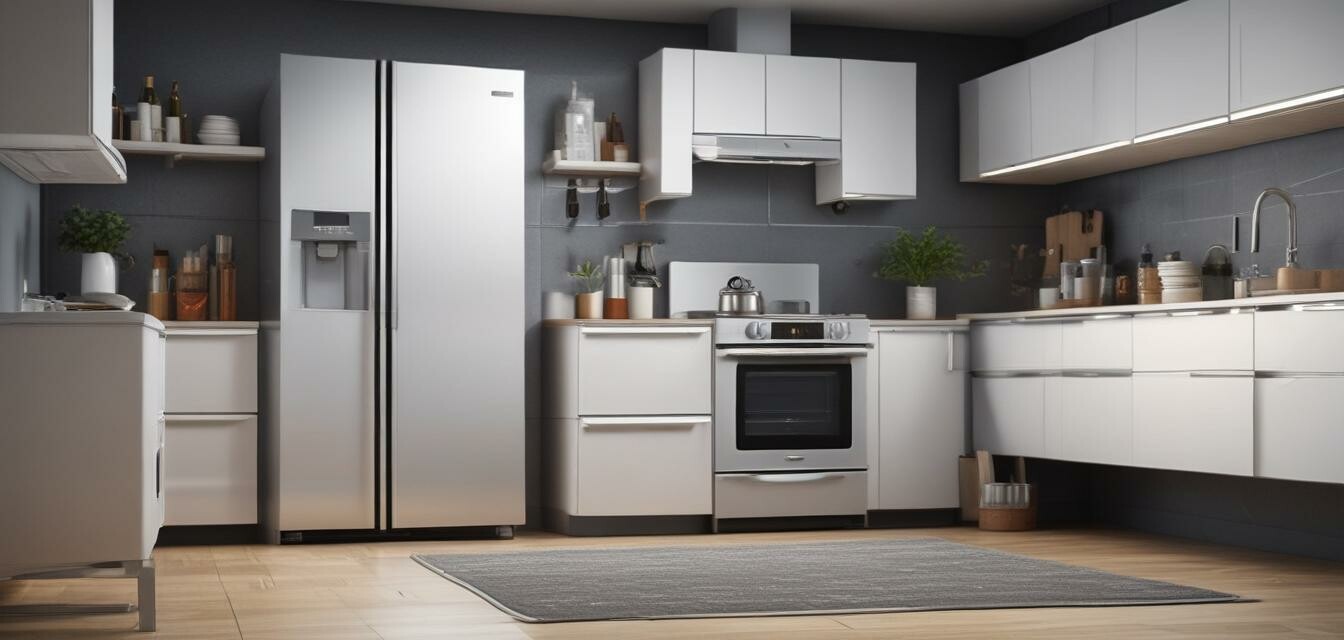
Predictions for energy efficient appliances in 2025
Key Takeaways
- Increased focus on smart technologies and connectivity.
- Growing consumer demand for sustainable and eco-friendly options.
- Introduction of new energy standards and regulations.
- Emphasis on multi-functional appliances to save space and energy.
- Innovative designs ensuring better energy efficiency.
The world of energy-efficient appliances is constantly evolving, driven by innovations and the ever-growing demand for sustainable solutions. As we look ahead to 2025, several trends and predictions are emerging that will shape the future of household appliances. This article explores expert predictions focusing on innovations, consumer demands, and industry changes expected in the coming years.
Smart technology integration
As technology continues to advance, smart home devices are becoming increasingly popular. In 2025, we can expect:
- Greater integration of appliances with smart home systems, allowing for remote management and monitoring.
- Enhanced data analytics features that help consumers better understand their energy usage.
- Capabilities for appliances to communicate with each other for optimized functionality, like scheduling energy use during off-peak hours.
This shift towards smart technology will not only make our lives more convenient but also promote energy efficiency, reducing waste and overall consumption.
Sustainability and eco-friendliness
More consumers are prioritizing sustainability when making purchase decisions. By 2025, we will witness:
- Increased development of appliances made from recycled or sustainable materials.
- A focus on energy-efficient designs that reduce the carbon footprint throughout the product lifecycle.
- Transparency in product sourcing, enabling consumers to make informed choices for eco-friendly products.
These movements in the consumer market are expected to encourage manufacturers to adopt more sustainable practices.
New energy standards and regulations
As the demand for energy-efficient appliances grows, regulatory bodies are establishing stricter energy standards. In the upcoming years, expect:
| Year | New Regulation/Standard | Expected Impact |
|---|---|---|
| 2025 | Increased efficiency requirements for refrigerators | Reduction of energy consumption by 10% or more. |
| 2025 | Mandatory energy labeling for all appliances | Improved consumer understanding of energy use and costs. |
| 2025 | Limits on standby power consumption | Encouragement for companies to innovate in energy-saving technologies. |
Focus on multi-functional appliances
As living spaces become more compact, consumers are inclined towards appliances that can perform multiple functions. Predictions for 2025 include:
- Multi-functional ovens that combine cooking, steaming, and baking capabilities.
- Washing machines that both wash and dry clothes efficiently.
- Dishwashers with built-in food waste disposal systems.
This trend will not only help save space in homes but will also reduce energy usage, leading to greater overall efficiency.
Innovative designs
The future holds exciting design advancements for energy-efficient appliances. Key predictions include:
- Streamlined designs that minimize energy consumption while maximizing performance.
- Stylish aesthetics that encourage consumers to showcase their eco-friendly appliances.
- Use of interactive displays for better user experiences and energy tracking.
As more homeowners wish to live sustainably, manufacturers will need to balance functionality with appealing designs.
Conclusion
As we head toward 2025, the energy-efficient appliance market is gearing up for significant changes driven by technology, consumer preferences, and environmental responsibility. Staying informed about these trends can empower consumers to make sustainable choices that benefit both their homes and the planet. For more information on energy-efficient appliances, check out our news and trends section and discover the latest updates and innovations.
Pros
- Cost savings through reduced energy consumption.
- Positive impact on environmental footprints.
- Enhanced convenience through smart home technologies.
Cons
- Initial cost may be higher for advanced models.
- Some consumers may find technology complicated to use.
Tips for buying energy-efficient appliances
- Research products with the Energy Star label for guaranteed efficiency.
- Compare energy ratings to find the best options.
- Consider long-term savings when assessing the upfront costs of an appliance.
